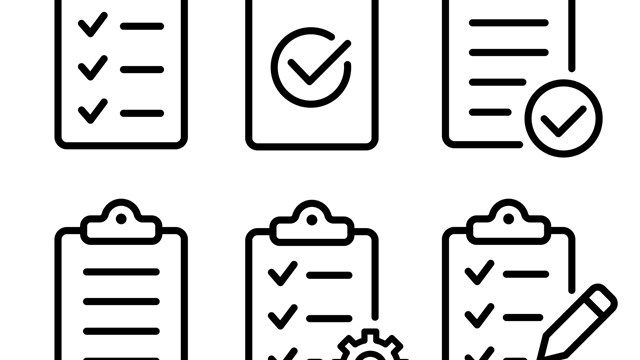For a crystal-clear picture of how an association is doing, there are few better lenses than the community's budgets and financial reports. From an investment perspective, they show the shareholders, managers, tenants, owners, and board whether the property is solvent or not. If the numbers add up and the monies coming in and out balance, you can safely assume everyone is doing their job, and upholding their financial duty to the community. If the property is in the red, it’s important to determine why that is, and what needs to be done differently to turn the situation around and restore solvency.
“I think the place to start would be to, to steal from the late Sy Syms—and the message is that an educated board member is the best board member,” says Jules C. Frankel, CPA, from the certified public accounting and consulting firm of Wilkin & Guttenplan, P.C. in East Brunswick. “ And that doesn't mean that a board member should be interfering with a managing agent or what the management company is trying to do. But that a board member has a fiduciary responsibility, should understand what's going on, and therefore help protect the property and the property values for their particular condo or co-op.”
It’s important to understand each financial document and its purpose so you can have a better understanding of exactly what’s going on in your association. So here’s a little Financial Paperwork 101.
Financial Statements
Financial statements show the income and expenses for an association. Start by taking a look at the various governing documents.
“Associations often do not have a complete set of governing documents. It is imperative that this information be available since it provides valuable information from both a financial and operational standpoint,” says Karen Sackstein, CPA, who has her own accounting practice in Fair Lawn.
After the governing documents, there are several items that a board should pay particular attention to. “From a financial perspective, there are three major groups of documents. Basically before the year, the most significant document is the budget. During the year, the most significant set of documents are the management packages. Most of the time they're on a monthly basis, some cases, rarely, they're on quarterly basis. And the last set of documents is after the year ends, which is normally the audited financial statements and the tax return,” says Frankel.
Association boards should be reviewing the documents they receive from the management company The packages will include a couple different financial indicators for associations and should be reviewed on a monthly basis.
“Most management packages will, number one, have a list of cash disbursements so that you can look at: these are the checks, these are the vendors, this is who got paid. They'll have a comparison of year-to-date actual versus year-to-date budget, to see whether you're on target or if there's an issue that we need to be dealing with and adjusting things. There will be an assessments receivable which shows the units of shareholders that owe us money. How long do they owe us this money? And do we have a procedure in place to go chase after these people?” says Frankel.
He continues to say that the package will often include a statement of unpaid bills, sometimes called an accounts payable listing. This file reveals which vendors are owed money from the association and can help boards allocate funds or start to pool resources to pay them off.
“Most management companies will also include copies of bank statements and sometimes bank reconciliations, as well as investments statements so that the board members can see this is where my money is, or and be able to keep an eye on it,” he adds.
An important component of managing finances is completing an annual audit. According to the Institute for Internal Auditors, “internal auditing bridges the gap between management and the board, assesses the ethical climate and the effectiveness and efficiency of operations, and serves as an organization’s safety net for compliance with rules, regulations, and overall best business practices.”
“At the end of the year, you want to make sure that an audit is performed on the books and records, that the auditor communicates the results with the board, and that the board looks and takes seriously any recommendations that the auditor might make as a result of their examination,” Frankel says.
As the year draws to a close, the board needs to prepare a budget for the upcoming year to outline a formal and written plan of financial operations. The budget reflects the needs and goals of the association for that year and identifies sources of income and the cost of potential expenses the board is anticipating.
“You want to make sure that when a budget is prepared that it's realistic. The way most condos and co-ops prepare their budget is let's say, they have a December year-end and they're preparing the budget, they might do so in October to have three quarters of a year of actual experience to look at. They project what they think is going to happen for the last three months of the year. Then they're going to project what are the changes that we know about for the following year that we need to deal with. In New Jersey, maybe it's the five year Department of Community Affairs (DCA) inspections that are coming up the next year that will cost them a few dollars. So the educated board member will make sure that the budget is prepared in such a way that it's realistic and that there's some amount of contingency there, because with Murphy's Law, something will always go wrong, and you need some extra funds to deal with what goes wrong,” says Frankel.
For Your Eyes Only
It is also important to consider who can see which documents. Certain paperwork should only be accessible to board members, while other files can and should be viewable by owners and even prospective buyers in order to disclose the status of the board or association and its expenses. It is important to note that being too generous with who can see what can lead to problems and unnecessary unease, but on the other end, being too secretive can lead to distrust in residents who might suspect that the board or management has something to hide. In other words, it is a very fine line to tread.
“All unit owners have the right to a copy of the annual approved budget and the monthly financial statements,” says David L. Ferullo, CPA, a partner at The Curchin Group, LLC in Red Bank. “To obtain a copy, the unit owner must generally make a request of the board or the management company. In some instances this request must be made in writing.
“There are some financial documents that unit owners are not entitled to receive,” Ferullo says. “These include a listing of delinquent unit owners, certain payroll information and documentation relating to certain legal matters. The board is mandated by law not to release information of this nature,” he says.
Reserve Studies
Emergencies are going to happen and every association needs maintenance and repairs and should be prepared with enough financial reserves to cover the costs of these emergencies and repairs. To know what those costs are, associations will typically hire an architect and/or professional engineering company to complete a reserve study. A reserve study provides estimations on repairs and replacement costs for the property.
For example, the engineer determines the roof has seven years life span left before it needs to be replaced. The replacement cost is $100,000. To raise that much money, the association needs to save a minimum of $14,000 per year (x 7 years) just to cover this replacement, assuming no other money is already put aside.
The study is done every one to five years, and the cost depends on the depth of the study. “An association generally engages an engineering firm to conduct a capital replacement study at the time of developer transition. This study should be updated every three to five years depending upon the nature of the items included in the capital reserve fund, whether or not there have been any significant additions/deletions to the capital reserve fund components and the estimated useful lives of the components,” says Ferullo.
Financial Security
Last year in Chicago, the co-owners of a defunct Chicago condominium management company were charged with fraud for allegedly stealing more than $2 million in assessment payments In Washington, D.C., the FBI arrested the owners of a property management company accused of defrauding an estimated million dollars from homeowners. And this past spring, in Exeter, New Hampshire, a property manager was accused of stealing $67,000 from three Exeter condominium associations. He allegedly pocketed money meant to pay expenses. These examples are not meant to provoke panic and suspicion among residents and board members but serve to show that fraud can occur, especially during under-supervised and overly permissive circumstances.
So how does an association maintain financial security? There are a couple tasks to perform to ensure the confidentiality and safety of your documents and certify the integrity of employees and residents.
“The “key” control to maintaining financial security is a board who takes a very active role in reviewing the monthly financial statements and supporting documentation, questioning those who have prepared the statements and being very involved in the operations of the association,” says Ferullo.
Frankel says that financial misdeeds can be mitigated by an involved board. “In those rare instances in where we deal with fraud, we've seen a number of times where it's the managing agent. We've even seen sometimes where it's board members. So, the ways to reduce the probability of this happening, is to make sure that somebody is keeping their eye on the money and looking over somebody else's shoulder. Not in an obnoxious way, but to be educated about how we're spending our money,” he says.
He continues to say that “part of it deals with making sure that for significant items, you're getting competitive bids so that you're choosing the vendors whose bids are in the ball park and there's no padding and money going back to somebody else. Some boards are adopting conflict of interest policies, to make sure that board members understand what their fiduciary responsibility is. And there's even some co-ops that have adopted whistle blower policies, that if somebody is suspecting that something is awry, that they notify somebody like the independent attorney to let them know that there's an issue here and maybe it ought to be looked at.”
Sackstein adds that, “association funds should never be commingled with other associations. All accounts must be maintained independently under the association’s unique taxpayer identification number.”
She continues to caution that while many New Jersey associations have implemented a method of having two individuals sign checks, “Board members mistakenly believe that if they sign checks, they are secure. However, unless source documents including invoices, contracts, and bank statements are also examined, the check signing control is not enough. We recommend that board members examine a monthly financial package which includes a balance sheet, profit and loss statement with budget vs. actual results, a check register, and bank statements and reconciliations for all accounts,” she says.
Reviewing and updating an association's documents is a vital process that all board members should be engaged in. Doing so can aid in preventing fraud, help develop a realistic plan of financial operations and increase both board member's and owner's knowledge of an association’s cost and expenses.
Lisa Iannucci is a freelance writer and a frequent contributor to the New Jersey Cooperator.







Comments
Leave a Comment